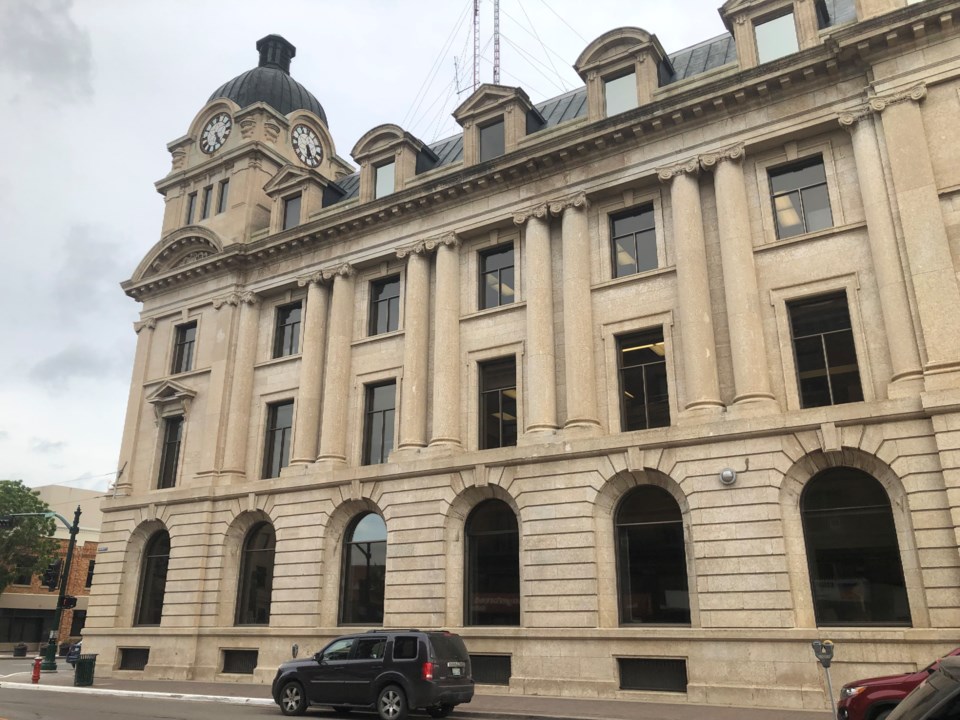With federal and provincial emergency benefits geared toward workers, Coun. Dawn Luhning wants action taken to financially help community businesses that were forced to close after being deemed non-essential.
To kickstart that action, Luhning submitted a motion during the April 13 regular council meeting to have city administration provide council with a list of non-essential businesses that pay property taxes per month, with the municipality to potentially eliminate those taxes.
Council voted 6-1 in favour of the motion; Coun. Brian Swanson was opposed.
Council discussion
Opening the 2020 budget to find savings is a good idea, but it’s too slow to help people, especially non-essential businesses, Luhning said. Workers are receiving all the new emergency benefits, but business owners — who have to pay taxes, utilities, insurance and overhead costs — are receiving none.
Since these businesses are unable to generate revenue, eliminating their bills could help in the short-term, she continued. Some business owners have told her there are incentives to attract new businesses to Moose Jaw, but none for established companies.
“I understand that we have limited resources and we are struggling … (and) as municipalities we can’t do this very often,” Luhning said. “But this is (an) unprecedented time. This is an emergency. This is something we’ve never faced … in our lifetime.”
If council doesn’t support established shops now, they won’t be around later and that will cause more problems, she added.
The provincial government has defined which businesses are essential and non-essential, so that list can be added to the resolution, said city manager Jim Puffalt. Council will have to do “unusual things” during this emergency, which may mean making changes to help get businesses through this.
Luhning’s idea to help non-essential businesses might be too expensive, but that won’t be determined until city administration looks into this, he continued. If some businesses can’t pay their taxes at all, then eliminating the 2.3 per cent tax increase this year, as council is considering, probably won’t help them.
City administration will work with the business community to ensure it takes advantage of all federal and provincial programs.
While Coun. Heather Eby supported the motion, she was hesitant to craft a specific program since she was unsure what it would look like. Such a program, she thought, would either suggest giving people more money or not forcing them to pay their bills.
“It’s a bit of a slippery slope,” she said. “There has to be criteria (with a program). Then someone has to administer that criteria … there’s just not going to be enough money for everyone.”
Eby added that she does care about community businesses since she is a business owner who has also been shut down, yet, the municipality doesn’t have the resources to help every shop.
It’s ironic that — before this conversation — council eliminated a clause in a motion to reduce the operating budget by about $800,000, but now wants to approve a motion that will cost millions, said Swanson. It will also cost millions of dollars for city administration to review what businesses are non-essential and how much they pay in utility bills.
Swanson sympathized with the business community, but though this particular motion would undermine the stability of Moose Jaw as a functioning operation. He preferred to reduce expenses over writing off property bills.
It’s disappointing that some councillors want to politicize this issue, said Luhning. She didn’t think residents cared right now about such pettiness since they have their worries.
“The idea that my motion would cripple the city (is ridiculous). The motion of a zero per cent tax increase would cripple us as well,” she added.
The next regular council meeting is Monday, April 27.




